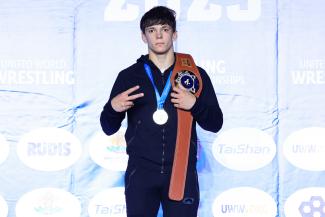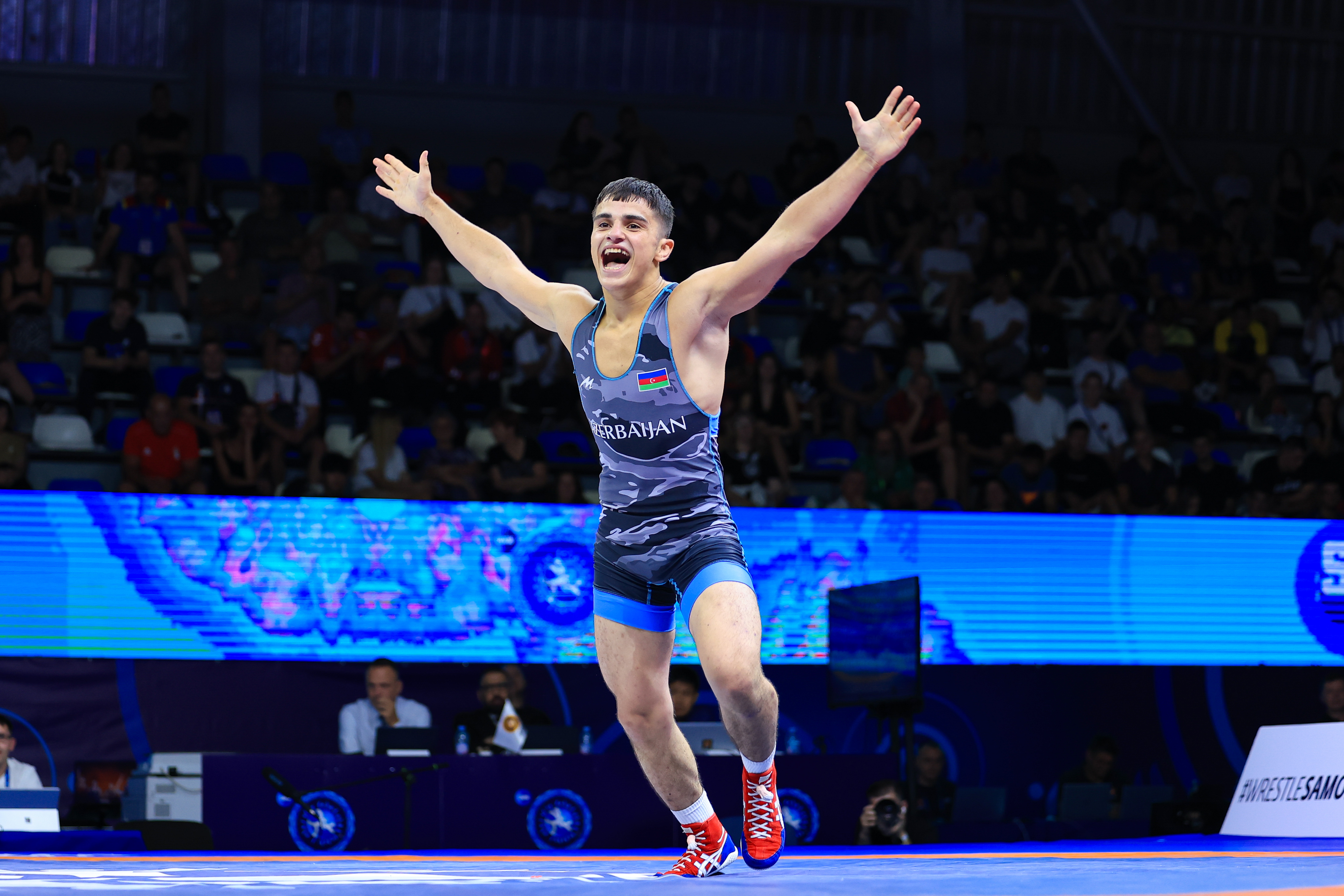Promising Sterkenburg twins head to Spain with history on line
Thursday, October 13, 2022 - 07:35 By Vinay Siwach

PONTEVEDRA, Spain (October 13) -- For a long time, the Netherlands had been all but wiped out of the wrestling map. Apart from the small bursts in female wrestling, it mainly struggled to get into the top-10 position at international competitions.
But that changed last year.
Twin brothers Marcel STERKENBURG (NED) and Tyrone STERKENBURG (NED) are the rising stars of the nation with hopes of qualifying for the Paris Olympics. But before they know their Olympic fate, the twins are putting the country back on the world map, one step at a time.
The two will become the first wrestlers from the Netherlands to compete at the U23 World Championships in Pontevedra, Spain next week with hopes of winning the first medal as well.
They are no strangers to breaking new barriers. Last year, the two wrestled their way to historic gold and silver medals at the U20 World Championships to end a long wait for the Netherlands.
This year in March, Marcel won the U23 European Championships at 82kg while Tyrone finished third at 97kg. Two weeks later, they debuted at the senior Europeans aged 20 years but failed to win a medal.

Continuing their progress to become elite-level wrestlers, the U23 Worlds is an important pit stop for the two.
"I did gain enough power and weight for 87kg," Marcel said. "I’ve been feeling good this last month and the most important part of this U23 Worlds is proving that I can wrestle just as good as I was in 82kg."
After winning the U23 Euros, Marcel realized that the 2024 Paris Olympics are just around the corner and qualifying for the Games is an important step to keep his career going. For that, he moved to the Olympic weight class of 87kg.
"My focus after that was to gain weight," Sterkenburg said. "I am going to go to 87kg and in the Netherlands, my brother is the only training partner but he is 97kg so it is difficult to train with a bigger guy. So now I will be a better training partner for my brother as well."
The two were on the course when an unexpected problem arose. Marcel got a throat infection, making it difficult for him to breath while wrestling due to swollen tonsils. It got worse in Poland when he wrestled at the Wladyslaw Pytlasinski Cup in June.
"I passed out during my bout before getting a surgery done there," he said. "I will get the tonsils removed after the World Championships."
The training was halted and it only resumed in September when Marcel felt better. For the major part of their career, the two have been the only training partners for each other as the Netherlands lacked the 'quality' to make international wrestlers. But with wins at the U20 Worlds and U23 Euros, the Olympic committee in the Netherlands invested in the brothers.
"Since our medals for two years, we get budgets from NOC so we can travel and improve our wrestling," he explains.
The two, along with their coach Edward GICEWICZ, travel around Europe to get the best training. Over the years, they have found a great circle in Denmark, Norway and Sweden, training with European champion and world silver medalist Turpan BISULTANOV (DEN).
The training stints become important since different training partners bring in vast level of skills to challenge the wrestlers.
"On a technical base, I can improve a lot like my stance as it is a little bit rushed," Marcel said. "I fall at the beginning of the bout so small things."
The training trips to different countries come as a huge relief to them as they recalled the early days in the sport when it was impossible to get any partners.
"Before wrestling, we were training in boxing and judo," he said. "But everyone told us that we should try wrestling and begin naturally competitive, so we decide to train. Then my Poland coach came to the Netherlands and he coached only Greco-Roman so we decided to do.
"It was scraping with very little," he said. "We were asking for budgets from friends or foundations and our coach helped us. Sometimes we slept on the mats or at the cheapest possible option because the money to fund trips was difficult."
The medals at the Wladyslaw Pytlasinski Cup in Poland in 2020 and a bronze at the U20 European Championships a year later not only brought funding, the U20 Worlds medals helped them being noticed in the Netherlands.
The two brothers were all over the newspaper, invited to TV and radio shows and even to charity events. They were the new hope of Netherlands wrestling.
While training takes up most of the time, the twins liked the new side of their life. They enjoyed it. But quickly returned to training.
"I am studying commercial economics which also takes my time," Marcel said. "Apart from training I like going to cinemas and drawing. Both of us go to Thailand every year since my mother is from there."
Even during their off time, the Sterkenburg twins train on the beach in wrestling and visit the MMA gyms every day for training.
But before they leave for Thailand for another homely trip, the two want to bring more attention to the Netherlands with a medal at the U23 Worlds next week and embark on their Olympic journey.
"We’re both going for the gold medal, to make things even better than last year when Tyrone got silver," Marcel said.


 Aykhan JAVADOV (AZE) celebrates after winning the gold medal at 60kg. (Photo: United World Wrestling / Amirreza Aliasgari)
Aykhan JAVADOV (AZE) celebrates after winning the gold medal at 60kg. (Photo: United World Wrestling / Amirreza Aliasgari)
Share your thoughts.
Comments